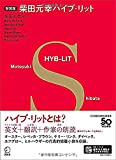
翻訳家の柴田元幸さんが、毎回一人、英米現代・古典の重要作家を選び、その小説の翻訳術を紹介します。まずは作家の特徴がよくわかる文章と、柴田翻訳の妙技をご堪能ください。
紹介する作家:ジェームズ・ボールドウィン
1924 年アメリカ、ニューヨーク州生まれ。1940 年代後半からフランスで著作活動を行う。50 年代後半にアメリカに戻り、公民権運動に積極的に参加した。代表作に『山にのぼりて告げよ』『ジョヴァンニの部屋』など。1987 年没。
『Sonny’s Blues』(1957)
And the living room would be full of church folks and relatives. There they sit, in chairs all around the living room, and the night is creeping up outside, but nobody knows it yet . You can see the darkness growing against the windowpanes and you hear the street noises every now and again, or maybe the jangling beat of a tambourine from one of the
churches close by , but it’s real quiet in the room. For a moment nobody’s talking, but every face looks darkening, like the sky outside. And my mother rocks a little from the waist, and my father’s eyes are closed. Everyone is looking at something a child can’t see . For a minute they’ve forgotten the children. Maybe a kid is lying on the rug , half asleep. Maybe somebody’s got a kid in his lap and is absent-mindedly stroking the kid’s head. Maybe there’s a kid, quiet and big-eyed, curled up in a big chair in the corner. The ilence, the darkness coming, and the darkness in the faces frightens the child obscurely. He hopes that the hand which strokes his forehead will never stop?will never die. He hopes
that there will never come a time when the old folks won’t be sitting around the living room, talking about where they’ve come from , and what they’ve seen, and what’s happened to them and their kinfolk.
But something deep and watchful in the child knows that this is bound to end, is already ending. In a moment someone will get up and turn on the light. Then the old folks will remember the children and they won’t talk any more that day. And when light fills the room, the child is filled with darkness. He knows that every time this happens he’s moved
just a little closer to that darkness outside. The darkness outside is what the old folks have been talking about. It’s what they’ve come from . It’s what they endure. The child knows that they won’t talk any more because if he knows too much about what’s happened to them, he’ll know too much too soon, about what’s going to happen to him.
(“Sonny’s Blues,” 1957)
だが子供のなかに、何か深い、油断を怠らないもの があって、その何かは知っている、これがいつか終わ ること、すでに終わりはじめていることを。じきに誰か が立ち上がって灯りを点けるだろう。そして年寄りた ちは子供らのことを思い出し、もうその日は何も話さな いだろう。そして光が部屋を満たすとき、子供は闇に 満たされる。そのたびに、自分がまた少し外の闇に近 づいたことを子供は知っている。外の闇―年寄りた ちはいままでその闇のことを話していたのだ。その闇 こそ彼らが元いた場所なのだ。その闇に彼らはいまも 耐えている。年寄りたちがもう話さない理由を子供は 知っている。彼ら4 4 の身に起きたことを子供が知りすぎ てしまえば、子供はあまりに多くをあまりに早く知って しまうからだ―これから自分4 4 の身に起きることを。 (「サニーのブルース」)
引用がスペースの大半を取ってしまって恐縮だが、こ の一節にボールドウィンの魅力が凝縮されていると思う のでお許し願いたい。黒人が置かれてきた状況の辛さ が生々しく伝わってくるとともに、日曜の夕方に子供の ころ誰もが感じた心細さのようなものも 同時に 喚起する 文章であり、個別性と普遍性が見事に両立している。 20 世紀アメリカの黒人文学はボールドウィンの先 輩リチャード・ライトのNative Son(1940)とともに 本格的に始まる。ライトにあっては「抗議小説」の要 素が強かったが、ボールドウィンは抗議というテーマ に収まりきらない小説を書いた。たとえばGiovanni’s Room(1956)という見事な小説は、ヨーロッパを舞 台とし、登場するのはみな白人であるゲイ小説である (50 年代にこうした内容を書けたのは、作者がアメリ カではなくパリにいたことが大きい)。
引用したのは1957 年の短篇“Sonny’s Blues” の一節 で、堅気の高校教師である兄と、危なっかしいミュージ シャンの弟の物語のなか、ここだけは語りがしばし二人 から離れて現在形に移行する。 ちなみに 結末でミュー ジシャンたちが演奏するくだりもここに劣らず見事。
この連載では「翻訳はないことにする」を原則にし ているが、今回はその原則を破って、この「サニーの ブルース」の見事な翻訳が収められたアンソロジーを 紹介しておく:平石貴樹編『アメリカ短編ベスト10』 (松柏社)。タイトルにたがわずほかの作品も傑作揃い のアンソロジーである。
柴田元幸さんの本
1954(昭和29)年、東京生まれ。米文学者、東京大学名誉教授、翻訳家。ポール・オースター、スティーヴン・ミルハウザー、レベッカ・ブラウン、ブライアン・エヴンソンなどアメリカ現代作家を精力的に翻訳。2005 年にはアメリカ文学の論文集『アメリカン・ナルシス』(東京大学出版会)でサントリー学芸賞を、2010年には翻訳『メイスン&ディクスン(上)(下)』(トマス・ピンチョン著、新潮社)で日本翻訳文化賞を、また2017年には早稲田大学坪内逍遙大賞を受賞。文芸誌「MONKEY」(スイッチ・パブリッシング)の責任編集も務める。
出典:Raymond Carver and Tom Jenks, eds., American Short Story Masterpieces (Dell)
boocoで読める!アルクの新刊、続々登場
語学アプリ「booco」なら、アルクのベストセラー書籍200タイトル以上が、学習し放題!
「キクタン」などアルクの人気書籍800冊以上が音声対応。「読む」に対応した書籍では、本文と音声をスマホで手軽に利用できるほか、一部の書籍では、学習定着をサポートするクイズ機能で日々の復習や力試しも可能です。さらに、Plusプランに加入すれば200冊以上の書籍が学習し放題に!
boocoの「読む」機能では、次のような使い方ができます。
① 学習したいページを見ながら音声を再生できる
② 文字サイズや画面の明るさを調整できる
③ 書籍内検索ができる
※ これらの機能には一部の書籍が対応しています。

▼「booco」の無料ダウンロードはこちらから







